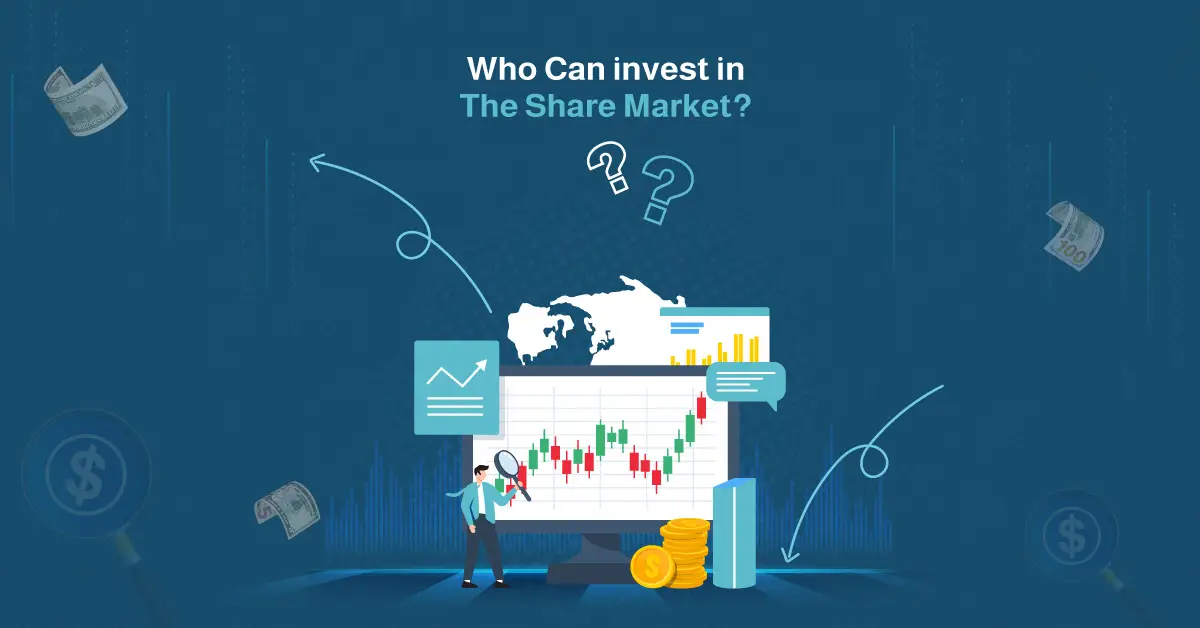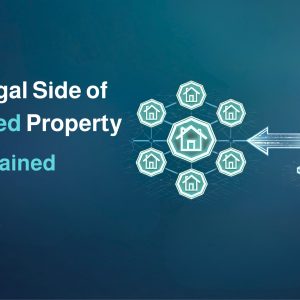When people talk about building wealth, the stock market almost always comes up. It’s where companies raise capital and where investors try to grow their money over time. But before thinking about strategies or returns, it helps to answer a simple question: who can invest in the share market?
This is more than a technical formality. Knowing who qualifies to invest, and what’s required, will help you approach your financial goals in a strategic manner. In Saudi Arabia, for example, regulations outline who is allowed to open a trading account, what documents they need, and how age or residency might affect their eligibility. These same ideas apply globally, though the rules differ from one market to another.
If you’re a student, a young professional, or simply curious about investing, understanding the entry requirements can help you start with confidence. It shows you what’s possible right now, what steps to prepare for, and how to avoid common pitfalls first-time investors face.
This blog will walk you through those essentials, highlight the different types of investors in the market, and explain how you can begin responsibly, even with a small amount of capital.
More topics can be read on the Gamma blog
Understanding Share Market Eligibility: Who Can and Cannot Invest
Before getting into strategies or returns, it’s important to know who’s actually allowed to participate in the share market. The rules aren’t as complicated as they might seem, but they do matter. They make sure every investor is legally recognised and financially responsible for their actions in the market.
In Saudi Arabia, anyone over 18 years old with a valid national ID can open a trading account and start buying shares on the Tadawul, the
country’s main stock exchange. Minors can also invest, but only through accounts managed by a parent or legal guardian until they reach adulthood. This gives young people the chance to start early while keeping the account under supervision.
Foreign investors have access too, though the rules are slightly different. Non-Saudi residents living in the Gulf region can usually open accounts if they have legal residency documents, while international investors from outside the region may need to apply as Qualified Foreign Investors (QFIs). This process involves meeting certain income or asset requirements set by the Capital Market Authority (CMA).
There are only a few groups who cannot invest in the share market: individuals without proper legal identification, people restricted by court orders or bankruptcy rulings, and anyone involved in insider trading violations. Aside from these exceptions, the share market is open to a wide range of participants, from everyday individuals to major institutions.
Key requirements to Start Investing in 2026
Once you know who can invest in the share market, the next step is understanding what you actually need to get started. Having the right accounts and documents in place is what turns the idea of investing into something real and actionable.
The process is straightforward, and most platforms in Saudi Arabia and globally follow similar steps. Here’s what you’ll typically need before placing your first trade:
Basic Requirements
- Proof of identity: A valid national ID or Iqama (for residents). Some platforms may also accept a passport for non-resident foreign investors.
- Bank account: A local bank account in your name to fund your trading account and receive any earnings.
- Age requirement: You must be at least 18 years old to open an account on your own. Younger investors can start under a guardian’s supervision.
- Trading account with a licensed broker: This account links you to the stock exchange, allowing you to buy and sell shares.
- Initial deposit: Some brokers have minimum funding amounts. These can be as low as a few hundred riyals, while others may require more.
Helpful Extras
- National Address registration for Saudi residents, which many local brokers require for verification.
- Basic financial literacy so you understand how stocks work, what risks are involved, and how to manage your portfolio responsibly.
Once these pieces are in place, you can start buying shares, tracking your portfolio, and learning as you go.
Different Types of Investors: Retail vs Institutional
Not everyone in the share market invests in the same way. Knowing the difference between retail and institutional investors helps you understand how the market functions — and where you fit in as a beginner.
At its core, the market brings together individual participants and large organisations. Each group plays a different role, operates on a different scale, and has different goals.
Here’s a quick comparison:
| Type of Investor | Who They Are | How They Invest | Typical Investment Size |
| Retail investors | Everyday individuals investing their own money | Use online brokers or trading apps to buy shares directly | Small to medium amounts (can start with a few hundred riyals) |
| Institutional investors | Organisations like banks, pension funds, insurance companies | Pool funds from clients or members and invest on their behalf | Very large amounts (millions or billions of riyals) |
Most beginners start as retail investors. They buy shares with their own money and make independent decisions. Institutional investors, on the other hand, have teams of professionals, advanced tools, and large pools of capital. Their trades can influence market prices, while retail investors usually have more flexibility and fewer restrictions.
Both groups are essential. Institutions bring liquidity and stability, while retail investors make up the bulk of daily market activity. If you’re new, it’s reassuring to know that most market participants started exactly where you are, as individual retail investors learning the ropes.
Risks and Responsibilities of First-Time Investors
Knowing who can invest in the share market is only half the story. The other half is understanding the risks and responsibilities that come with it. Investing can grow your wealth, but it also exposes your money to market ups and downs. Being prepared for that reality is what separates confident investors from nervous beginners.
Market Risks to Be Aware of
- Price volatility: Share prices can rise and fall quickly. It’s normal, but it can be stressful if you’re not ready for it.
- Company performance: If a company performs poorly, its stock value can drop, and you could lose money.
- Economic factors: Market conditions are influenced by interest rates, global events, and government policies. These can all affect your investments.
Starting with a small amount of money can help you learn how these risks work without putting too much on the line.
Your Responsibilities as an Investor
- Research before buying: Understand the companies you’re investing in and what drives their performance.
- Set clear goals: Decide if you’re investing for long-term growth, short-term gains, or passive income.
- Stay consistent: Regular investing often works better than trying to time the market perfectly.
- Keep emotions in check: Making impulsive trades based on fear or excitement can lead to losses.
How Gamma Assets Offers Accessible Real Estate-Backed Alternatives
Investing in the share market can be rewarding, but it isn’t the only path to building wealth. Some new investors prefer starting with something more stable and tangible before diving fully into stocks. That’s where alternative investment platforms can play a useful role.
If you’re exploring ways to diversify beyond the share market, platforms like Gamma Assets allow investors to participate in real estate-backed opportunities, even with modest amounts. Instead of buying an entire property, you can invest small amounts into professionally managed real estate projects. This gives you exposure to the property market without the heavy upfront costs or management responsibilities that usually come with owning real estate.
For beginners, this can offer a few benefits:
- Lower entry barrier: You don’t need large capital to start investing.
- More predictable returns: Real estate tends to move slower than stocks, which can help balance out market volatility.
- Passive income potential: Some projects generate regular rental income, which can supplement your earnings from stocks.
- Built-in diversification: Combining real estate with stocks spreads your risk across different asset types.
You can start investing now from the Gamma Asset Investment Platform
Building confidence as a new investor
Knowing if you can invest in the share market is the first real step toward building your financial future. The market isn’t reserved for experts or the wealthy; it’s open to students, young professionals, and anyone ready to take a disciplined approach. Educating yourself on the eligibility rules, the account requirements, and the responsibilities involved gives you a solid foundation to start from.
Starting small can help you build confidence without risking more than you can afford. Over time, you’ll learn how the market reacts to news, how different companies perform, and how to manage your emotions when prices rise or fall. That experience is just as valuable as the money you invest.
At the same time, you don’t have to limit yourself to stocks alone. Including other assets, like real estate-backed opportunities through Gamma Assets, can add stability and variety to your portfolio as you grow.
With the right preparation and mindset, you can move from curious beginner to confident investor — and start using the share market as a tool to reach your long-term financial goals.
FAQ’s
What is the minimum age to invest in the share market in Saudi Arabia?
In Saudi Arabia, you need to be at least 18 years old to open a trading account in your own name. If you’re younger than 18, you can still invest, but only through an account managed by a parent or legal guardian. The account remains under their control until you reach adulthood, which gives you an early start while keeping your investments supervised.
Do foreigners living in the Gulf region have share market access?
Yes. Non-Saudi residents living in the Gulf region can usually open trading accounts if they hold valid residency documents (Iqama) and a local bank account. Foreigners who live outside the region can also invest through the Saudi stock market, but they may need to apply as Qualified Foreign Investors (QFIs). This process includes meeting income or asset requirements set by the Capital Market Authority (CMA).
Are there special accounts for beginners to start investing safely?
Some brokers in Saudi Arabia and the wider Gulf region offer beginner-friendly accounts with low minimum deposits and educational resources built in. These accounts work just like regular trading accounts but are designed to make it easier for new investors to start small and learn gradually. Choosing a licensed broker with clear support tools can help you build confidence as you learn.













